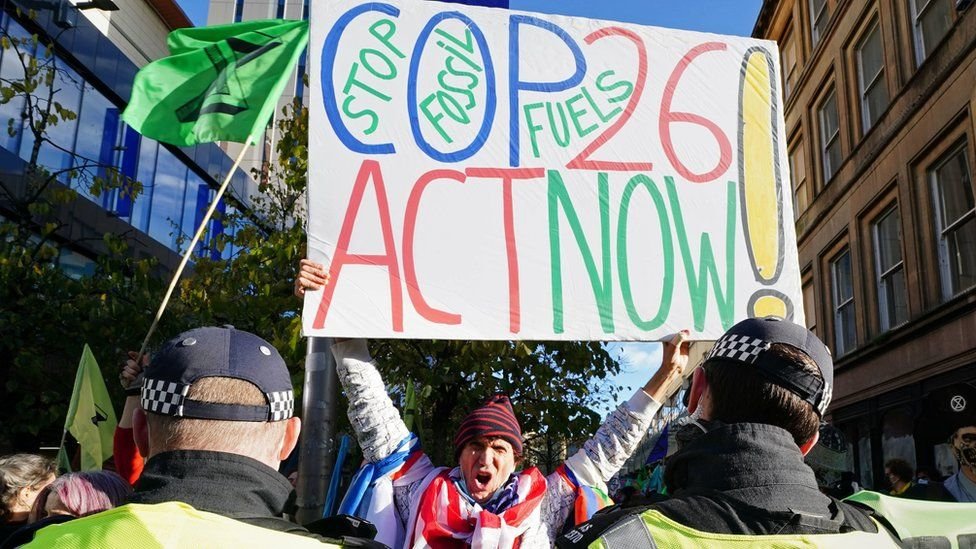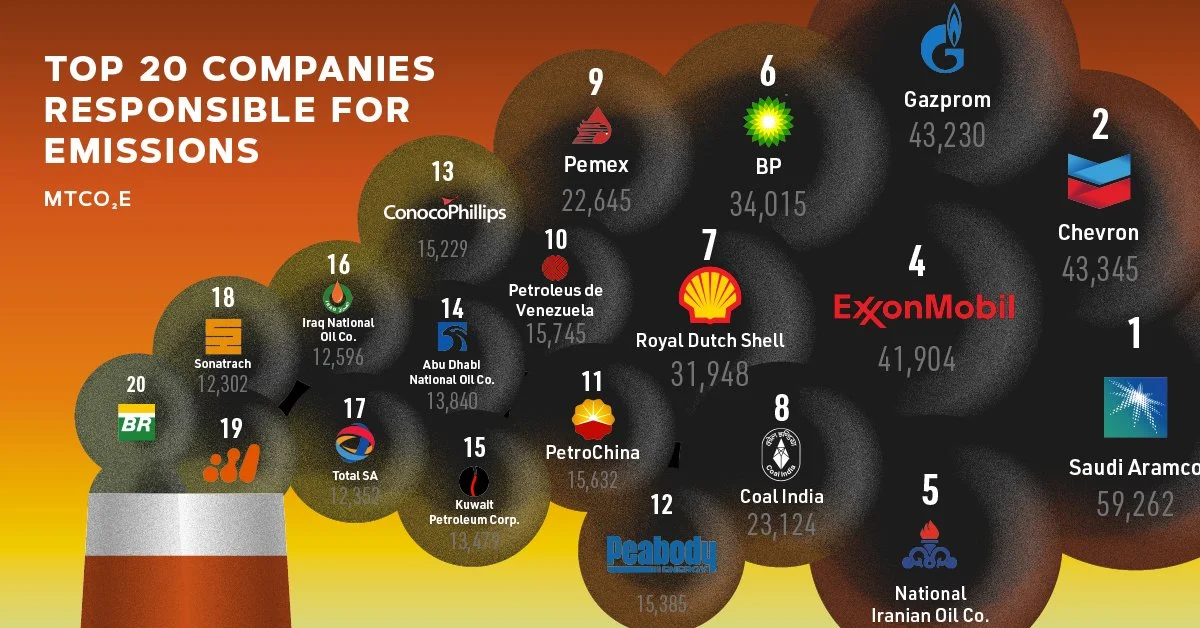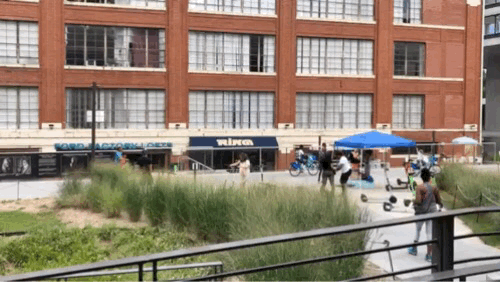How to Tackle Climate Change with APIs
From buying a heat pump at a big box retailer to paying for services with a local HVAC installer, businesses can guarantee that their customers will maximize rebates and tax credits when purchasing qualifying electric appliances.
On Supercharging the Streetlight
Over the past few months, I’ve thought about ways that cities could expand access to chargers across the country, but I was stuck. Whether it was installation barriers for MFD property owners, a peer-to-peer charging network, or relying on corporations like GM or public utilities to provide access, they all seemed to be limited by creeping land use and individual decision makers.
On Designing Livable Cities for All
Trees are still the most effective and affordable way to sequester carbon. On average, a single tree sequesters 50 lbs of carbon dioxide a year. Over the average 40-year lifespan of most urban trees, that’s roughly 1 ton of carbon dioxide per tree. With an estimated 5.5 billion trees in urban areas alone, you get 137.5 million tons of carbon sequestered from the atmosphere from urban forests every single year and 5.5 billion tons over 40 years — a small investment with a big ROI.
On Saving Money as a Climate Solution
Sense-induced energy reductions will vary from house-to-house and depend on a variety of factors, including energy provider (and their fuel mix), whether the home has solar and a battery, and how many appliances are gas-powered vs. electricity-powered.
On Building the Future
My goal with this newsletter is to learn in public about the ideas, concepts, and companies that give us hope for a future where our built environment makes us healthier, not sicker. I’ll explore the promises of climate impact, the science, how it impacts you, and how you might get involved.
The Role of Carbon Accounting in Systemic Change, Pt. 2
Carbon markets are an opening for corporate enterprise and a distraction from real reduction strategies. In the last few months, I've learned of and compiled a growing list of carbon market APIs and marketplaces that are well-intentioned, but signal opportunities to keep business as usual.
Why the Business of Counting Carbon Needs More Time, Pt. 1
CMAP continues to command a growing space in my free thought. If you've read some of my past calls to climate action, you'll quickly realize that I advocate for individual climate advocacy as a groundswell for major climate action. In the past few years, after learning more about climate change and witnessing very real present-day impacts, I was determined to find my own path to create change.
Why Corporate Emissions Data is the Superpower for Effective Climate Action
Carbon markets and carbon accounting is an interesting sector. Yes, quantifying emissions is critically important to making better decisions, but how can we take it a step further than throwing money at the problem? How can we avoid making offsets the poster child of "business as usual"?
Why Are We Watching the Earth Burn?
Despite all the warnings, despite the science, despite the realities we face every day, we continue to go about everyday life as the trajectory of our society continues to drive us towards more consumption in the name of progress and wealth. Even if we somehow managed to bring a population consensus to mobilize in the name of climate action, we're only one nation on a globe with misaligned goals.
In a World of Climate Solutions, Policy Needs a Boost
Technology is not holding us back. Policy is. From a physical science perspective, despite learning ground truth about the effects of climate extremes on individual regions, the reality is we're not learning new things about climate change. It's an exclusively political problem. The potential mechanisms to solve climate change exist, we just need to put them into place now.
Why I’m Buying Into The Great Teslafication
Because public policy attempts to move our cities forward collectively, it runs into problems with consensus, education, and inclusion. Where the reach of public policy influence ends, private industry takes over, creating commercial solutions that address the collective demands of private citizens through innovation and design. As a result, we’ve slowly added better, cheaper insulation to our homes during renovations, installed more efficient tankless water heaters when our old natural gas tanks fail, and even become fanatics of electric vehicles.
Sometimes, as is the case with consumer brands like Tesla, a fanatical following can push collective demand through vanity, envy, and prestige.
In Atlanta, the BeltLine Approaches Climate Change by Design
Not only does the BeltLine aim to revitalize unused and abandoned railways, but this rails-to-trails initiative is paving the way for a stronger relationship between people and their built and natural environments.
Starting Your Climate Journey
Gore, Gates, Thunberg, McKibben.
They all approach climate action in different ways, but they share one element — optimism. Their optimism is rooted in knowing what’s at stake and what we can do to prevent catastrophe.
It may not be the time to take our foot off the gas, but sometimes it's important to let someone take the wheel for a bit. Tackling climate change alone is not just exhausting, it's also arguably futile.
In Portland, 15-Minute Neighborhoods Focus on the People
Walkability may not be top of mind for the average Portland tourist like it is in New York City, but it's a clear benefit if you're staying on the Eastside of the river. Nearly every neighborhood on the Eastside of Portland features a wonderful new restaurant or neighborhood institution that anchors public thoroughfare — featuring a combination of lively walking culture with convenient corner markets and small local businesses cozily mixed in with commercial complexes, light industrial, and modern one-plus-five mid-rise apartments.
3 Ways to Approach the Climate Crisis with Curiosity and Concern
Whether you've calculated your carbon footprint or joined the Climate Reality Project leadership, your action is making an indelible mark on the progress of this global movement to eliminate carbon emissions and become a more sustainable planet.
Why Carbon Accounting Falls Short and We Can Do
Despite growing pushback against carbon footprint calculators, I believe that the data behind our individual impact on the planet is valuable. Our personal emissions data does not absolve corporations from polluting but instead drives home a valuable message about the trifecta of reducing the cost of lifestyles, holding corporations accountable, and encouraging investment into environmentally friendly products.
What Can I Do On Earth Day?
Something happened over the last few years that changed my perspective on climate activism. I was never a conspiracist or non-believer in climate change, but just as bad, I was a passive global citizen and inactive participant in the fight to reduce carbon emissions.
Why Data Alone Won’t Save Cities
I subscribe to the notion that the design of our cities is the driving force behind our choices and behaviors. Although I’m still working on a thesis to summarize my views on cities and climate change, my general hypothesis is this:
If our behaviors control how humanity impacts climate change, then our cities are the first and last battleground for defeating the global climate crisis.
Why New Isn't Always Better for City Redevelopment
Not only did Lacaton & Vassal beautify the building with a shining new glass facade that created more living space for its residents, but the project was less expensive and more environmentally sustainable.
Reframing the scope in the PD phase from rebuilding to remodeling reduced the amount of demolition, new material, and labor effort. With a modular-design, each terrace was was built as a minimalist, portable, and stackable unit, which made cost-effective prefabricated construction a viable option.
Why Each Chapter of Your Life Story Should Be A Hypothesis
The thing is, although I'm drawn to the title of the book, I'm more interested in the contents within. I'm not interested in judging the book by its cover, I'm interested in the experiments that were conducted and what, if any, conclusions were drawn. Can I learn from them? Can they teach me? Can I share them easily with others?
So each chapter in my book would start with a hypothesis and each would learn from the last, resulting in more sophisticated hypotheses that learn from work, collective understanding, and our rapidly changing environments.





















